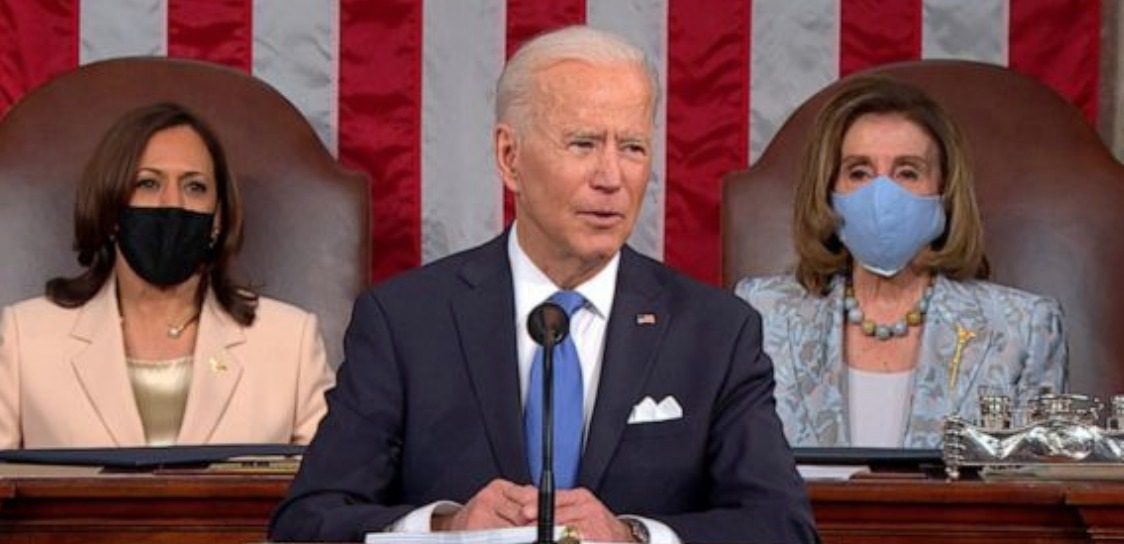Joe Biden says China is coming for the U.S. and the Politburo thinks democracies can't match the focus of tyrannies. Which is true. If only he understood why they're wrong.
As you can imagine, I'm going to give Biden the knucklebone shampoo here. But first let me praise him for being old-school. Which progressives despise. But one thing I like about Biden, first elected to the Senate in 1972, is that he's about the last Cold War liberal left standing.
On domestic policy he's not so much liberal as all-in woke socialist. (Hey, I said I was going to heckle him.) But on foreign policy he still has those Henry Jackson instincts that America is better than its rivals and if they want a fight he's ready.
He's warned Putin on cyberwar. And he claims he told Xi Jinping the U.S. will stay strong in Asia as in Europe "not to start conflict but to prevent one." Which rather echoes President James Garfield's splendid phrase "Of course I deprecate war, but if it is brought to my door, the bringer will find me home."
By the way Garfield, a successful Civil War general and according to Candice Millard's Destiny of the Republic a splendid human being, was elected in 1880. (And tragically assassinated by a lunatic in 1881.) Some ideas don't grow old. Including freedom.
Still, I'm quite concerned about what Biden thinks it means. "China and other countries are closing in fast. We have to develop and dominate the products and technologies of the future," Biden declared. And then, in what the National Post said "drew some of the strongest applause of the evening" added "There is simply no reason the blades for wind turbines can't be built in Pittsburgh instead of Beijing."
If that's your idea of American exceptionalism we're badly off track. Not because wind turbines are ugly and don't work very well. But because they're a classic emblem not of freedom but of big-government, centrally-planned, heavily-subsidized stupidity. Let the Politburo win that race, I say. America didn't become a world leader in cars, the film industry or high tech because of central planning.
Ah but that was then, some say. So at the risk of annoying progressives, Biden's concern that Xi Jinping "and others, autocrats, think that democracy can't compete in the 21st Century, with autocracies," is not about the 21st century. It's old news. Stalin and Brezhnev thought so, and it worried conservatives and excited liberals like John Kenneth Galbraith and Paul Samuelson who both proclaimed the Soviet economy a success in the 1980s and wished our governments would be more activist too. Wuk wuk wuk.
This idea was also the subject of Friedrich Hayek's splendid if largely impenetrable 1944 The Road to Serfdom, dedicated rather pointedly to "the socialists of all parties". Hayek warned that the Anglosphere was abandoning the liberty that had made it dynamic, prosperous and secure in the deluded belief that central planning was a better way to achieve key priorities. And is that not Biden's credo?
As the Post also noted, "Seeking a historic reshaping of the U.S. economy, Biden laid out plans to tax wealthy Americans and corporations, in order to fund massive investments in infrastructure, education, and low-income and middle-class families." And at one point in the speech he groused "When you hear someone say that they don't want to raise taxes on the wealthiest 1% and on corporate America ask them: whose taxes are you going to raise instead, and whose are you going to cut?" Uh, I'd cut spending. Did that thought never cross his mind? Even FDR had some serious concerns about a swollen state and welfare dependency.
I'm not quite sure what to make of Biden's pledge that "America will stand up to unfair trade practices… like subsidies to state-owned enterprises and the theft of American technology and intellectual property". When Trump started trade "wars" people said it was bad, and not without reason. But something needs to be done especially about the theft. Still, let us not get distracted.
On the vital mission of preserving America's strength, let me quote another president addressing Congress nearly two centuries ago: John Quincy Adams. I realize he was so far behind the times he could write English with one hand and Greek with the other simultaneously and his vice-president was a man. (Far worse, it was John C. Calhoun.) But JQA wasn't a total idiot. And in his First Annual Message on Dec. 6, 1825, he said with penetrating insight that "liberty is power".
Xi Jinping doesn't think so. But I'm not sure Biden does either. And that way lies decline.
He may claim, with bloated arrogance, that "Now after just 100 days I can report to the nation: America is on the move again. Turning peril into possibility. Crisis into opportunity. Setback into strength." And after lunch, world peace. But consider how liberty made the small, foggy British Isles the jest of tyrants from Philip II to Napoleon to Hitler… and then their scourge.
From Louis XIV to Lenin, the enemies of freedom thought limited government and personal liberty brought chaos, selfishness and weakness. And they were wrong every time. But once the socialists got control in the UK after 1945, on the same idea, they did what no autocrat ever managed, draining Britain of economic vitality, cultural confidence and geopolitical strength with stunning speed.
If the same happens to America, we're all in huge trouble regardless of Biden's feistiness.
Photo Credit: ABC News








